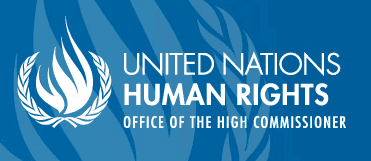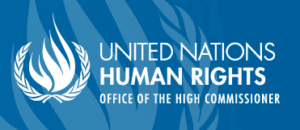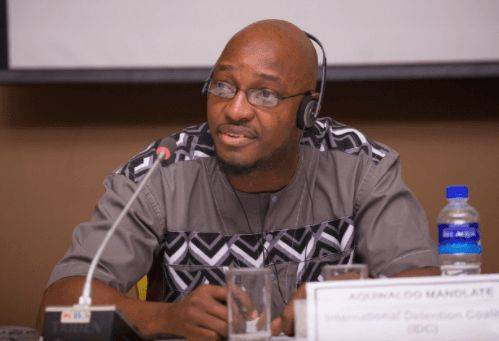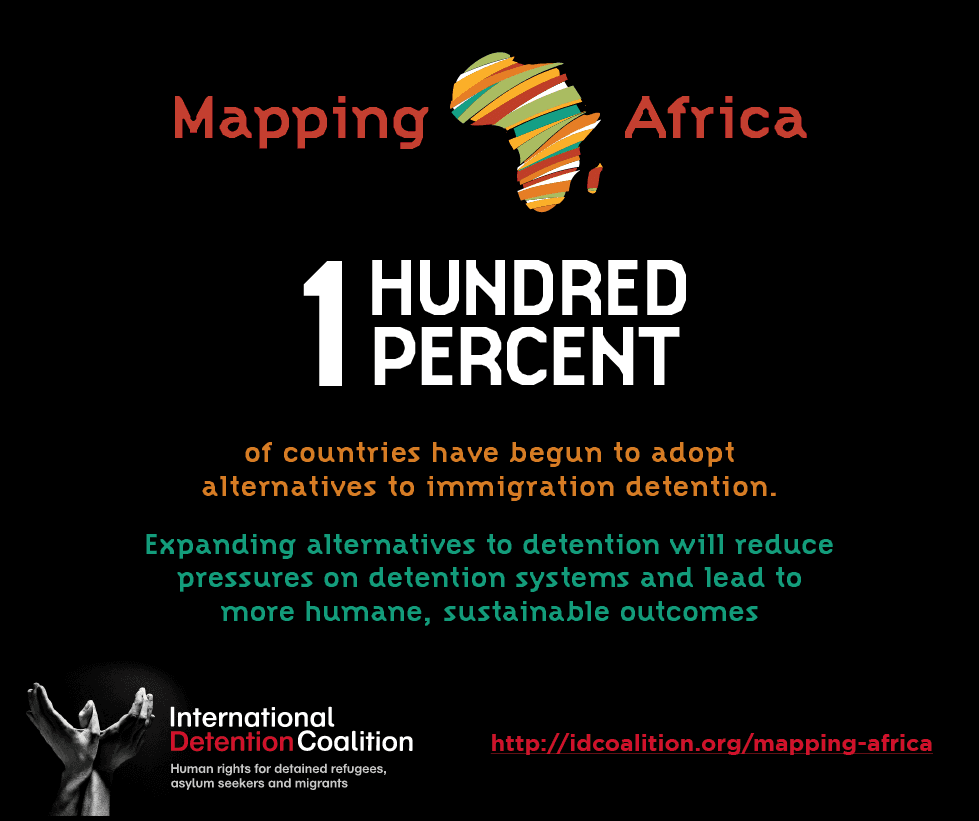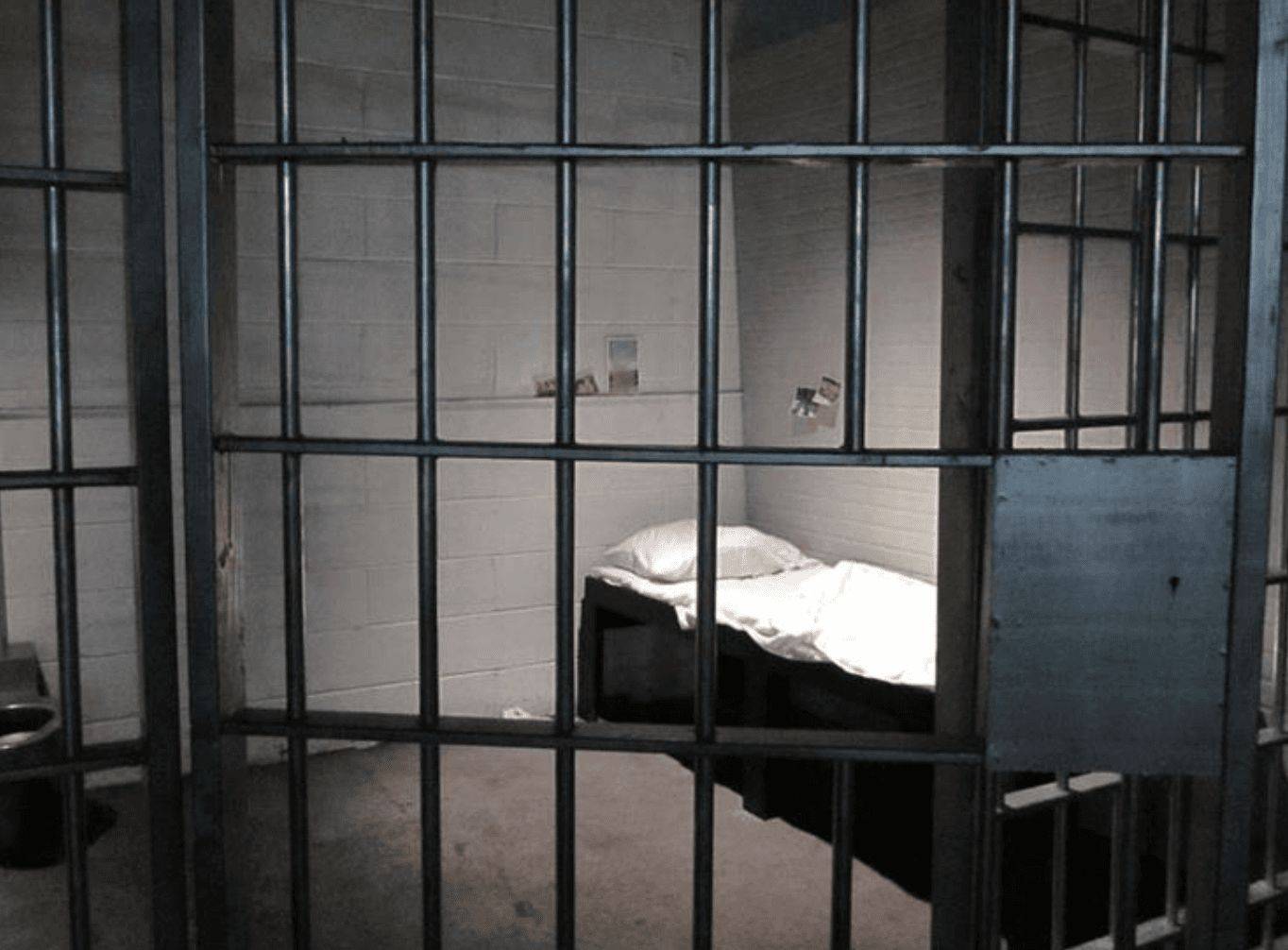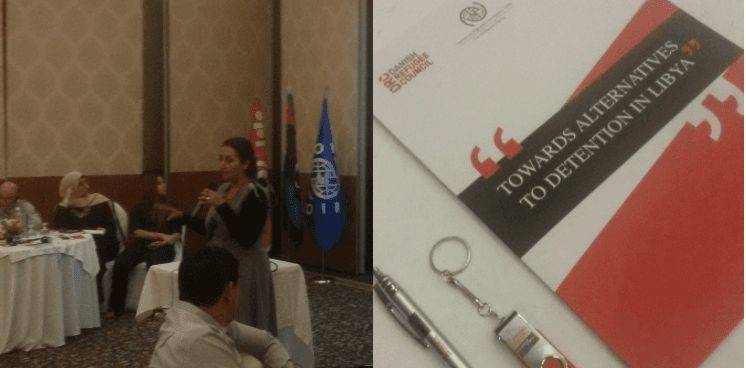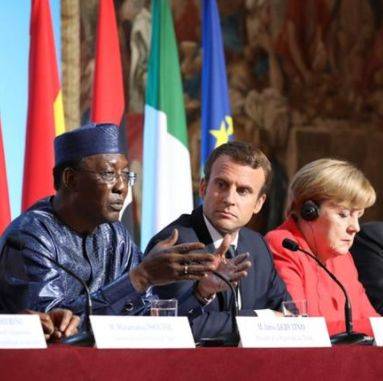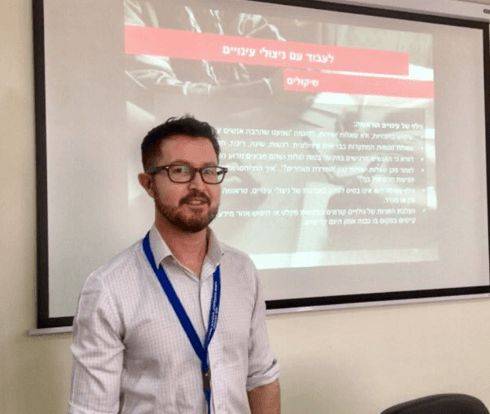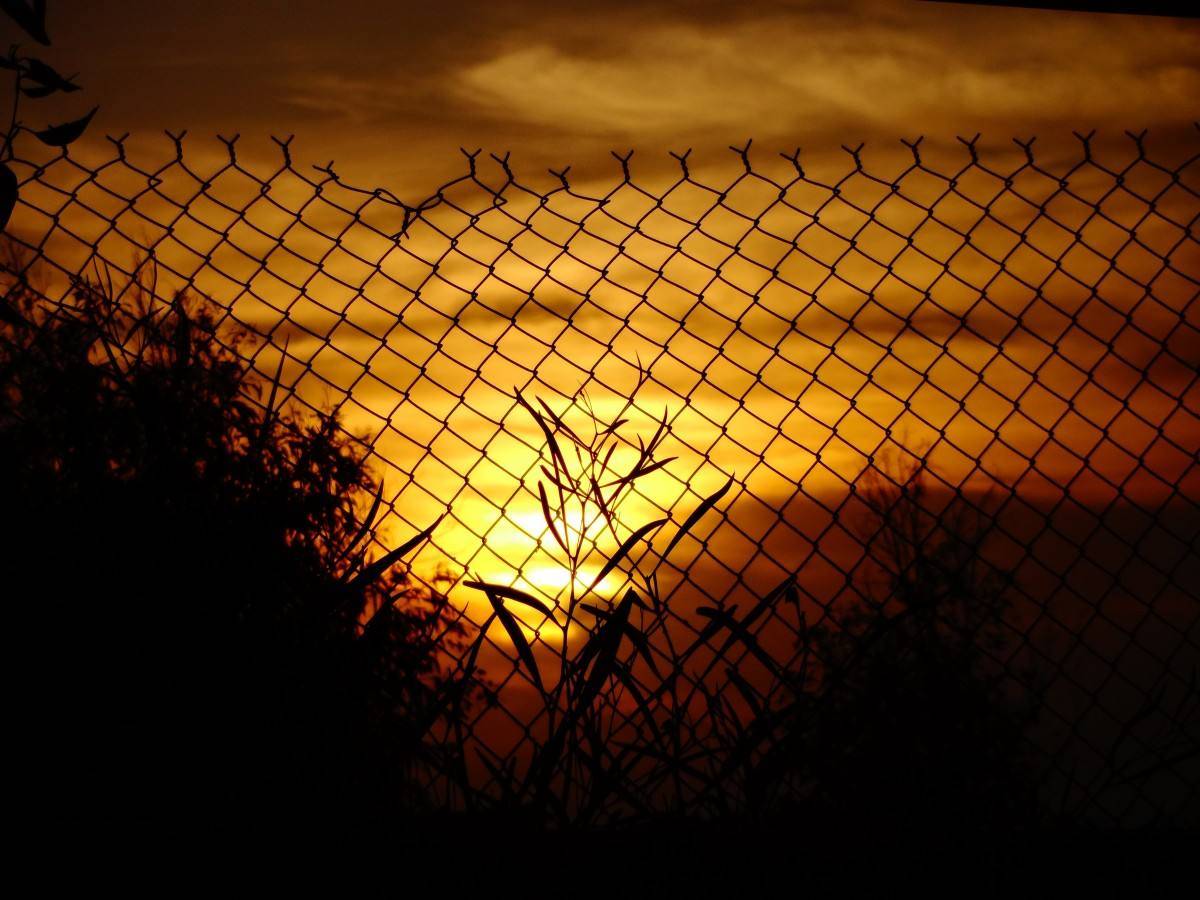IMPORTANT: Call for Inputs on Immigration Detention
WHAT: The Committee on the Protection of the Rights of All Migrant Workers and Members of Their Families has decided to elaborate General Comment No. 5 on Migrants’ Rights to Liberty and Freedom from Arbitrary Detention. This is a critical opportunity to provide input and feedback on fundamental human rights issues. The Committee invites all stakeholders to provide inputs to this initiative through a questionnaire by 1 April 2019. The concept note and questionnaire are available in English and Spanish HERE.
HOW: Please send responses electronically in Word format to [email protected] with subject line “Submission for General Comment on Migrants’ Right to Liberty.” Submissions should not exceed 10 pages. Written submissions will not be translated and should preferably be submitted in English, however submissions in French and Spanish will also be accepted. All submissions will be posted on the webpage of the Committee unless explicitly indicated to the contrary.
Any questions should be addressed to the Secretary of the Committee, Mr. Luc Mubiala, at [email protected].
If you would like to inquire about being connected to other organisations in your region also working on responses, please contact the following IDC regional offices:
Americas [email protected]
Europe [email protected]
Africa [email protected]
Middle East & North Africa [email protected]
Asia Pacific [email protected]
Adopting Alternatives: An Opportunity for Africa
A key forum in Africa highlights a significant opportunity in Africa.
The IDC, invited by the Africa Commission for Human and Peoples Rights (ACHPR) Committee for the Prevention of Torture in Africa (CPTA) and the Special Rapporteur on Refugees, Asylum Seekers, Internally Displaced Persons and Migrants, joined a panel discussion on the Situation of Migrants at Risk of Torture and other Ill-treatment in Africa: Alternative Approaches during the 63rd Ordinary Session of the African Commission.
"State representatives and the Commission members expressed a real interest in solutions..." Dr. Mandlate at ACHPR 63
Dr. Aquinaldo Mandlate from IDC member organisation Southern African Litigation Centre (SALC) represented the IDC. He spoke alongside Commissioner Hatem Essaiem (Chairperson of the CPTA); Commissioner Maya Sahli-Fadel (Special Rapporteur); Judge Malick Sow (Member of CPTA); and Mr Mamina Jallow (Member of the Gambian Returnees from Backway Association).
The Panel drew attention to the situation of migrants in Africa. Judge Sow, Commissioners Essaiem and Sahli-Fadel highlighted the risk of torture and other ill-treatment of migrants during their journeys, especially in detention; also pointing out the duties of States to prevent such abuse under the Guidelines and Measures for the Prohibition and Prevention of Torture, Cruel, Inhuman or Degrading Treatment or Punishment in Africa (the Robben Island Guidelines). Mr Jallow then humanised the discussions by poignantly sharing his own experience of abuse, extortion and ill treatment while travelling from The Gambia across Mali, Mauritania, Burkina Faso, Niger and Libya, in the hope of reaching Europe.
Dr. Mandlate outlined solutions to the problem. He presented “Alternatives to detention” as a strategy that Governments, along with civil society, can pursue in order to implement more humane, effective and affordable migration management systems.
He described some examples of alternatives currently in operation across the African region. Others can be explored in the IDC’s “There are Alternatives: Africa” report, launched earlier this year.
IDC member Aquinaldo Mandlate speaking on the Panel. Photo Acknowledgement, ACHPR.
Questions and comments were raised by representatives from the Arab Republic of Egypt; the National Preventive Mechanism (NPM) of the Islamic Republic of Mauritania; the National Human Rights Commission of the Republic of Rwanda; Prisoners Rehabilitation and Welfare Action (PRAWA); Advoc Aid Sierra Leone; Equality Now – Solidarity for African Women’s Rights (SOAWR) Coalition; and la ligue marocaine pour les droits de l’homme. The discussions touched on three pressing issues that African governments should address in order to increase the safety of migrants and ensure Alternatives:
- The lack of both socio-economic opportunities in their countries and legitimate migration pathways which is pushing people to embark on dangerous journeys
- The military crises and conflicts fueling insecurity and forcing people to flee
- Corruption among relevant authorities that leads to abuse and extortion of migrants
Commissioner Essaiem closed the panel by urging states to use Alternatives as a solution.
Dr. Mandlate noted: “State representatives and the Commission members expressed a real interest in solutions which will prevent torture of African migrants in the future. This proves there is much space for engaging stakeholders in the development and implementation of effective Alternatives to immigration detention in Africa.”
The IDC looks forward to finding ways to support African states in their implementation.
For further information please see the ACHPR press release on the same matter or contact the IDC Africa Regional Coordinator, Junita Calder via email: [email protected]
Our Work in MENA: A Year in Review
North African alternatives to detention collected in new report: “There Are Alternatives: Africa”
There Are Alternatives: Africa describes examples of “alternatives” in operation across North Africa and was launched alongside the African Commission on Human and People’s Rights (ACHPR) 62nd Session in Mauritania. The IDC ran a side event on alternatives to detention identified across the African continent that are more humane, less expensive and more efficient at achieving case resolution.
Commissioner Maya Sahli-Fadel, Special Rapporteur on Refugees, Asylum Seekers, Migrants, IDPs, and Stateless Persons, was one of three speakers on the Panel discussion who highlighted the importance of identifying opportunities for shared regional approaches that assist in reducing the need for unnecessary immigration detention. Read her guide for policy makers, an introduction piece for handbook. The French translation is available, here.
See the Launch Agenda here and more information about the launch here.
The research for the report has highlighted three key themes. Firstly, there is widespread use of Alternatives in the MENA region, the IDC looks forward to publishing further findings on this as a result of our current research project (see more about ongoing field visits below). Secondly, there is growing momentum around the development of Alternatives globally. Thirdly, there are increasing practical developments in the implementation of Alternatives that yield benefits for governments, migrants, and host communities. For example, registration and provision of work permits to migrants who find themselves in an irregular situation in Morocco and Algeria.
African Commission on Human and Peoples’ Rights (ACHPR) 62nd Session, Mauritania
Junita Calder, IDC's Africa Regional Coordinator was invited by Honourable Commissioner and Special Rapporteur on the Rights of Asylum Seekers, Refugees, Migrants, Stateless Persons and IDPs Maya Sahli-Fadel to talk on the Panel “Understanding and Management of Mixed Migration in North and Sub-Saharan Africa” during the ACHPR Ordinary Session.
Meeting with Mauritanian NGO members
While in Nouakchott, IDC Middle East and Africa team met Mauritanian NGO members and partners to discuss how the IDC might be able to support them through combined advocacy and explored areas for future collaboration. We were particularly impressed by the women’s vocational training centre we visited which makes freedom of movement a reality, by supporting women from west African countries to access non-exploitative employment and support their children; eventually allowing them the economic freedom to return home, if they wish to or to begin the process of integration.
Middle East and North Africa Research Visits
The IDC is hoping to capture some of the learning about how Middle East and North Africa (MENA) governments have managed to host large numbers of refugees and migrants since the onset of the Syrian conflict, without resorting to the widespread use of immigration detention.
The IDC undertook study visits to Egypt and Lebanon in August and September. The visits aimed to document how alternatives to detention, especially case management systems, have been explored, developed and implemented en mass.
Case management, as we understand it, goes beyond following up on an individual’s migration status determination process. It is instead, a comprehensive and systematic service delivery approach designed to ensure support for and a coordinated approach to, the health and well being of people with complex needs and abilities.
The IDC MENA team explored what is working, what fits the local context, what doesn’t and why? The research is ongoing so if you have suggestions of alternatives that we should profile please get in touch: [email protected]
Next Gen Index scorecard launch in Lebanon
IDC, the Global Campaign to End Child Immigration Detention together with Insan Association launched the Lebanese “Next Gen Index” in Beirut, 4th September 2018.
The Next Gen Index is an important advocacy tool that ranks States on their progress in ending child immigration detention, and Lebanon came second last, behind the USA, with 18 points. The launch event created space for a conversation about child immigration detention, using the standard scoring framework to reflect honestly on the situation in Lebanon. Read more about the launch here and download the Lebanon report here.
Next Gen Index Israel
The Israel Scorecard Committee, comprised primarily of IDC member Hotline for Refugees and Migrants, completed the Next Gen Index for Israel. Their country report is available to download here.
Ongoing engagement in Libya: Increased capacity to offer Alternatives to Detention
Since 2015, IDC have been engaging and working with IOM and the Danish Refugee Council programmes in Libya. Working alongside these organisations, IDC has been running capacity building workshops for and providing technical advice to a range of Libyan NGO and Government staff, as well as embassy representatives based there. The workshops, training and research have inspired the design of local alternative to detention programming options. IOM Libya has since increased staff to capacity to exclusively support alternatives to detention in Libya and IDC will continue supporting the development and piloting of host family and shelter alternative models.
UNHCR Global Detention Strategy
IDC attended a Global UNHCR Global Detention Strategy (GDS) internal meeting in April 2018 and met with both the Detention focal points from UNHCR Iraq and UNHCR Israel to hear insights into alternatives to detention in their national contexts. IDC MENA was then able to introduce UNHCR Iraq to the IDC Asia Pacific team and IDC Director when attending the UNHCR's Roundtable on Reception and Care Arrangements for Asylum-Seeking Children in Bangkok, Thailand 10-11 October 2018.
Engagement with MENA members and partners:
The IDC has engaged with around 200 MENA members and partners, with whom the IDC has shared their advocacy tools, including: IDC Online Training Toolkit; The Roadmap for States to Develop Alternatives to Detention; The Roadmap for States to End the Immigration Detention of Children; The Alternatives to Detention Database; The Global Campaign to End Immigration Detention of Children’s the Next Gen Index resources such as the Key Global Trends Report and the Global Launch Webinar. Around 10 new MENA members have joined the IDC in 2018, most of whom are from Lebanon, Mauritania, and Egypt. In addition, the IDC was able to connect organisations working on similar issues, both regionally and nationally.
Report Launch Alongside ACHPR
The International Detention Coalition (IDC) invites you to the launch of our new report and panel discussion on "Alternatives to the use of Immigration Detention in Africa".
The launch will be held on Thursday, 26 April 2018 as a side-event at the 62nd Ordinary Session of the African Commission on Human and Peoples' Rights (ACHPR) in Nouakchott, Islamic Republic of Mauritania.
Time: 12:30 – 14:00
Venue: TBC (within the Palais des Congrès)
Please see the Agenda for more information: Agenda ACHPR 62nd Session Side Event on Alternatives to Immigration Detention
Unfortunately the IDC does not have funding to cover participant's costs but please RSVP here if you are scheduled to attend anyway.
If you would like more details please email: [email protected]
Unlawful Detention: An Expensive Mistake for Governments
A woman in South Africa has been awarded R180,000 in damages - USD $15,500 - after being detained local police in September 2017 has been proven by the Pretoria Regional Court to be unlawful. The woman was detained for over 72 hours in a cell with her eight-month old baby.
The consequences of this illegal detention have proven to be an expensive misstep for the South African Government and a horrific ordeal for the woman involved. The woman was accused of being an illegal foreigner despite having a valid permit with her at the time. The police involved have also been found to have pressured the woman to bribe them for her release.
The ordeal highlights the issue of the unconscionable enforcement of immigration policies, and the window of abuse it can leave open.
Challenges with enforcement are not limited to one nation alone, in fact many can be seen across the Middle East North Africa region.
In Jordan, a migrant worker was held in detention for thirteen months without being referred to a judge, resulted in a court-ordered award of compensation with the detention being deemed as ‘arbitrary’. The man was jailed through no fault of his own since his employer was responsible for renewing his work permit but failed to do so. The court described his detention as violating both domestic and international law. Inconsistent practices by law enforcement and public security bodies have led to many similar injustices in Jordan.
Uganda also recently saw six senior police officers facing a military court for immigration misconduct and corruption. The officers are accused of abusing and extorting refugees, while also threatening to repatriate any person who reported their behaviour. The arrests have hurt the reputation of a country that prides itself on having a welcoming attitude to refugees in the region.
Israel recently had an expensive compensation case due to the improper enforcement of their temporary permit policy. The government has been required to pay out over USD $120,000 to five African asylum seekers who were illegally detained by the immigration authorities. The five migrants all qualified for temporary resident status, however after living and working in Israel for six years the group were summoned and illegally held at the Holot detention facility for over three years. The mental and financial stress caused by the period of detention could have been easily avoided if the Israeli government had adopted an alternative model that was human rights compliant, and ensured that enforcement was consistent and thorough.
In April of 2017 the government of Botswana was involved in an expensive and lengthy legal case that was instigated by several refugees who were detained at Francistown Centre for Illegal Immigrants. The group have argued that despite being detained at the centre for several months, they were yet to be provided with a reason for their detention. On April 13, the presiding Judge ordered that seven residents be released and their detention was ruled as ‘unlawful’.
The ongoing theme of expensive and time-consuming cases for compensation has come about due to the wrongful exercise of immigration policies. In enforcing a model that allows the abuse and neglect of refugees and migrants to occur, governments are ignoring the alternatives. There are alternatives to these models that are human rights compliant, are more effective and are economically beneficial. Find out more about these alternatives here.
Proposed Changes Risk More Statelessness in Egypt
Aspiring to be model in the region for guaranteeing protections to refugee and asylum seeking Syrians, proposed changes to Egypt’s citizenship laws appear instead to deny the right to nationality and put vulnerable people at risk of statelessness
Egypt has long been a country hosting refugees and asylum-seekers, whether it is their final destination or they are hoping to transit from there to other places. Egypt is currently the home of over 200,000 refugees and asylum seekers of 63 different nationalities, over half of whom have fled the war-torn country of Syria. Egypt has committed to , and aspires to be a , guaranteeing their rights and taking a firm stance against the establishment of camps, which can lead to ghettoisation. The Government of Egypt has policies that allow refugees and asylum seekers to regularise their residency, grant six-month renewable residency permits and allow for family reunification. Despite its difficult economic situation, Egypt guarantees full access for Syrian refugees to public education and health care services on equal footing with Egyptian nationals, as well as subsidized services provided by the State to Egyptian citizens, such as energy, transportation and food. However, as yet, this does not extend to other groups.
 Egypt works with the UNHCR to mainstream birth registration for refugees, fulfilling a core element of the Regional Refugee and Resilience Plan. Through these initiatives the vast majority of Syrian refugee children born in the country have been successfully registered at birth, giving refugee children a stronger foundation for protection against risks such as family separation, trafficking and statelessness. However, recently proposed changes to Egypt’s citizenship laws may severely weaken these important protections.
Egypt works with the UNHCR to mainstream birth registration for refugees, fulfilling a core element of the Regional Refugee and Resilience Plan. Through these initiatives the vast majority of Syrian refugee children born in the country have been successfully registered at birth, giving refugee children a stronger foundation for protection against risks such as family separation, trafficking and statelessness. However, recently proposed changes to Egypt’s citizenship laws may severely weaken these important protections.
Proposed changes
Under proposed changes approved by the Cabinet, Egyptian nationality (whether acquired at birth or through naturalisation) can be withdrawn “if [a person] joins any group, association, body, organization, gang or any entity of any nature with the aim of harming the public order of the state or to undermine the social and economic order by force or by any unlawful means”. If adopted, the ambiguous nature of the changes may put naturalised refugees (including refugee-born children) at risk of statelessness, if the Egyptian Government at any point considers a group to which they belong or have belonged, to undermine the social or economic order of the country.
 While the exact number is unknown, the UNHCR estimates that there are at least 10 million stateless people globally. Statelessness can severely impact a person’s life: stateless people are usually politically disenfranchised, often cannot travel freely and may not be able to access public services including health care, education, and welfare support, they are at a greater risk of arbitrary arrest and detention due to their lack of nationality, and are more likely to face exploitation and abuse in the labour market.
While the exact number is unknown, the UNHCR estimates that there are at least 10 million stateless people globally. Statelessness can severely impact a person’s life: stateless people are usually politically disenfranchised, often cannot travel freely and may not be able to access public services including health care, education, and welfare support, they are at a greater risk of arbitrary arrest and detention due to their lack of nationality, and are more likely to face exploitation and abuse in the labour market.
Right to a nationality
While they do not appear to be aimed specifically at refugees or asylum seekers, the proposed changes go against recent developments towards the right to a nationality in the country. The Egyptian Government has reformed its citizenship laws allowing women to confer nationality to their children at birth, and acceded to the UN-backed Global Action Plan to End Statelessness in 2014 with a view to ending statelessness globally by 2024. In line with the UNHCR’s #ibelong campaign to end statelessness, it is critical that all nations explore avenues for increasing protection and documentation for all refugees and migrants, both those arriving before the trouble in Syria and those who will still be in need of support, in future. We encourage Egypt to continue to extend the services offered to Syrian refugees to all asylum seekers in the country and to consider the implications of proposed changes to its citizenship laws for naturalized refugees and asylum seekers.
This article was written by Paul Michaels while completing the IDC Communications Internship Program.
Partners in Libya Advocate for Alternatives to Detention

The International Detention Coalition in partnership with IOM, the UN Migration Agency, and the Danish Refugee Council held a two-day meeting to explore alternatives to migrant detention in Libya on October 1 – 2.
The meeting, held in Tunis, brought together representatives from Libya’s Ministries of Foreign Affairs, Social Affairs and Labour plus the Directorate for Combatting Illegal Migration (DCIM) within the Ministry of Interior. Also in attendance were representatives from the African Union, diplomatic staff from eight African countries, Bangladeshi and Pakistani embassy representatives and participants from international NGOs and UN agencies.
The meeting provided an opportunity to discuss alternatives to detention with Embassy representatives, as well as how to address challenges facing diplomatic staff with regards consular procedure for migrants in detention.
Embassy representatives prepared a statement of principles, which was presented to the Libyan authorities on the second day of the workshop. The embassies emphasized the constraints they face in accessing their nationals in detention and called for improved collaboration with Libyan authorities and international organizations to find alternatives to detention that comply with Libyan law.
While the situation in Libya is complex and migration has many drivers that require efforts in the countries of origin, transit and destination, there are immediate practical steps that can be taken, emphasized Junita Calder, the International Detention Coalition representative.
These include introducing screening mechanisms, ensuring referrals and adopting a case management approach. With embassies on board to assist in this effort, there is an even greater likelihood of success, said James Martin, Head of Programmes, Danish Refugee Council.
Karolina Edsbacker, IOM Libya Protection Officer, praised ongoing ad-hoc initiatives of the diplomatic community in Libya to find alternatives to detention. “Community housing and other safe alternatives need to be further developed outside of detention and, for this, the collaboration with the embassies is key,” she explained.
This article is an excerpt from an IOM Press Release.
Please visit the link for full details.
Future Focus Needed

“Italy alone will need an estimated 1.6 million regular migrants over the next decade to sustain its welfare and pension schemes.” Leaders of The leaders of France, Germany, Italy and Spain in a joint statement.
Fortunately for both the African and European leaders, there are alternatives to a focus on expanding border forces and using detention to stop people moving across frontiers.
“It’s great to see the UNHCR following the lead of African civil society organisations, re-focussing resources to ensure alternatives such as freedom of movement and support services provided through reception centres” said IDC’s Africa and Middle East Coordinator, Junita Calder. “Let’s hope that their government counterparts in both Africa and Europe look at the efficacy of such options and allocate resources to increase their use.”

“It’s great to see the UNHCR following the lead of African civil society organisations, re-focussing resources to ensure alternatives…” Junita Calder, IDC Africa and Middle East Coordinator
Exploring alternatives to detention for torture survivors in Israel
There are an estimated 3,000 asylum seekers currently in Israel who have experienced torture in the Sinai prior to entering the country.
Research from IDC member Hotline for Refugee and Migrants has identified both the patterns and the impact of this torture on the lives of asylum seekers and their families from Eritrea and Sudan.
This detrimental impact on physical and psychological wellbeing has been compounded by the increased use of immigration detention for many of these asylum seekers, further traumatizing an already vulnerable population in need of urgent care and rehabilitation.
Asylum-seeker adults in Israel are jailed under the Anti-Infiltration Law that allows the state to jail, without trial “infiltrators” who’ve crossed the border for three months in Saharonim prison and can then be transferred to the Holot detention facility for up to one year. While detainees may leave the facility during the day, they may not work and must sleep in the facility located near the border of Egypt.

IDC Members, Hotline for Refugee Migrant Rights , have released a report. “Reappears” details new testimonies that show that the Bedouin smugglers are still active in the Sinai.
This is how Majed (not his real name) described it:
“We received three cups of water per day – morning, lunch and evening. We ate a cup of rice that was soaked in water once a day. We lived in an underground basement so the soldiers don’t discover us…”
Since 2010 NGOs in Israel, including Hotline for Refugees and Migrants, have worked to document, identify and refer cases in need of critical care, with few local rehabilitation options available. The increased use of Holot to encourage the return of asylum seeker has further challenged this work.
In June this year, the IDC Director, Grant Mitchell, visited Israel to build on this work, presenting to UNHCR and NGOs on strategies and techniques when working with torture survivors.

IDC Director Grant Mitchell presenting to the Ministry of Interior in Jerusalem, June 2017
Building on the IDC’s global work to support national level alternative to detention pilots for vulnerable populations, the IDC presented with UNHCR to government officials on a range of international models being used to support torture survivors in the community. This includes the new IDC and UNHCR joint Vulnerability Screening Tool and Foundation House’s Integrated Recovery Model. Both models assist to early identify, refer and provide rehabilitation to asylum seekers and torture survivors.
There was receptivity to explore rehabilitation options for this group with follow up being explored building on existing psychiatric and psychological counselling services for non-refugee trauma survivors. The IDC hopes to return to later in the year to provide further training and technical support.
IDC and Partners Continue to Promote Alternatives to Detention in Libya

For some time now, IDC has been working with partners in Libya to promote alternatives to detention.
This has included a workshop with civil society groups and NGOs that led to a plan of action to pilot alternatives (2014-15), followed by an alternatives to detention workshop with Libyan stakeholders including government departments and NGOs organised with support from DRC and IOM (2016).
The alternatives to detention campaign has now been taken up through the Libyan Mixed Migration Working Group which is co-chaired by UNHCR and IOM.
Using the principles of the previous workshops that encourage the promotion of alternatives for women and children and piloting alternatives for labour migrants, plans are underway to organise a follow up meeting with Embassies of affected countries to discuss alternatives to detention in the Libyan context.
It is well known that many people in detention in Libya rely on their Embassies for assistance and so establishing a link with Embassy focal points will hopefully foster an approach that promotes vulnerability screening and referrals where appropriate.
Recently the UN High Commissioner for Refugees (UNHCR) appealed to donors for funds to provide “meaningful alternatives” for people taking dangerous boat journeys from Africa to reach Europe.
While many challenges remain when working in the context of Libya, such as remote management and impediments to access due to insecurity and remote detention locations, it is encouraging to see that local organisations, civil society groups, NGO and UN agencies are coordinating efforts to promote alternatives to detention.

This article was authored by Dr Melissa Phillips, a member of the IDC International Advisory Committee.
